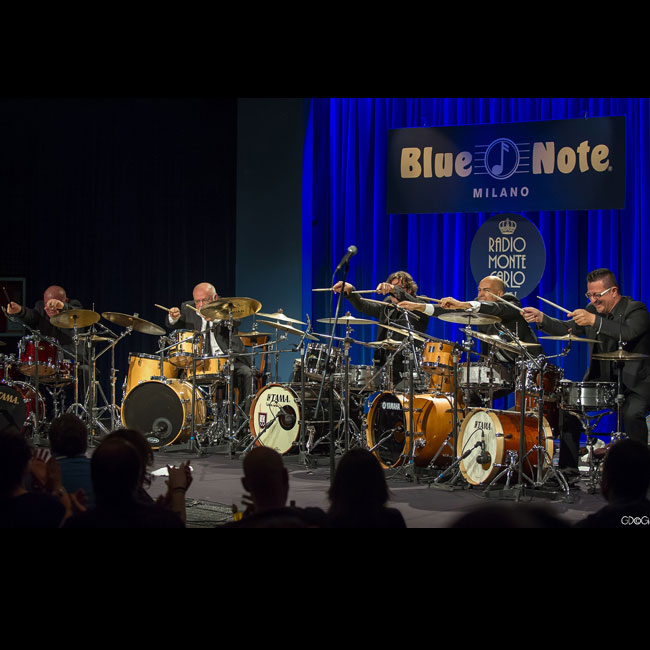The drummer is a social musician. This does not mean he is always sociable, but generally he is the musician who finds himself at his best when interacting with other people. Drums are, in fact, instruments of accompaniment; if left alone, they can hardly produce “music” in a melodic sense. Therefore, in nature, the drummer is an “animal” that finds himself or herself playing with other musicians almost by default – a social “animal”.
But this is not enough. Contrary to what one might think, the drummer is also a shy person, he usually doesn’t enjoy being the centre of attention. His instrument is placed behind the other musicians on stage, and he or she is normally hidden from view behind a wall of cymbals and drums.
The fact that the drummer is a social animal, shows also during meetings with colleagues, in fairs and festivals, when spontaneous groups of people with sticks in their pockets get together, people ready to debate the merits of a new drum set or the emergence of a new drumming talent. The idea for “Drummeria” took on a definite shape during these meetings amongst colleagues. Resulting from a few informal chats at a percussion festival, notes, followed by the first rehearsals, more new ideas, a concert, the improvement of a show, and the miracle was done: drum sets can make real music and put on a real show.
Today, “Drummeria” is like a clock made up of five completely different mechanisms, each one being absolutely necessary for the other. It is difficult to think of a more diverse “melting pot”, five styles of drumming derived from five different comers from the planet, five men who shaped the history of the Italian drumming over the last thirty years.


